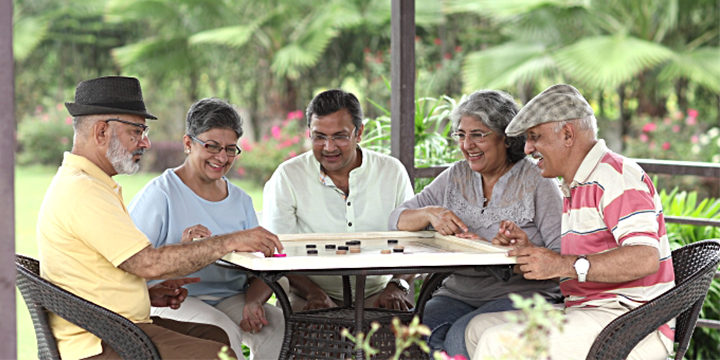Retirement usually coincides with the start of the natural decline in brainpower and the switch from busy work life to the slower pace of old age can leave a void needing to be filled with tasks that are mentally stimulating. However, a hobby that is mentally engaging such as reading, socialising or travelling and is also enjoyable conserves your brainpower and boosts mental health post-retirement.
A study of more than 200 pensioners found those put on a course teaching them something they had never done before had better memories after 12 weeks than those who engaged in social events or easy mental activities at home.
Keeping the brain active can keep mental deterioration at bay and even stave off depression, researchers found. Cognitive activities for the elderly help to keep their minds sharp and alert while reducing the risk or delaying the onset of age-related dementia. Elderly people can enhance their brainpower simply by learning a new skill.
The deceleration in activity when people retire signals that the brain is being used less and less, having long-term implications for its ability to perform properly. Anyone who exhibits even the mildest signs of depression is likely to suffer a decline in brainpower once they leave work. People who retired from managerial jobs or professional work were more likely to keep their faculties than those who had unskilled or clerical occupations during their work life, it was found.
The more one took part in activities that were enjoyable and mentally demanding, the less likely they were to experience a decline in brainpower while keeping the activities multifarious and varied boosts brain health and longevity, it is said.
Retirement usually occurs right around the time when normal age-related declines in cognitive function set in. This can be avoided by focusing on getting people to increase their engagement in a variety of cognitive activities even if they have lower levels of motivation to do so. It is equally important to address symptoms of depression to help fight against cognitive decline.
For most of the elderly, the decline is part of the ageing process caused by the death of brain cells. For others, dementia is the result of an illness or disease such as Alzheimer’s Disease, Multiple Sclerosis or Huntington’s Disease.
There are many types of activities that help to maintain and improve the cognitive skills of older seniors. Some of them involve everyday activities. Other mind-challenging activities include playing games, making crafts and solving puzzles.
Hobbies and Crafts
By learning a new hobby or taking up a craft elderly individuals are able to keep their brains active and alert. These activities rekindle the brain cells and often provide interaction with others. Finding something that interests the elderly person provides them with enjoyment and a sense of positive self-esteem. Eye-hand coordination and motor skills are preserved through this. These activities engage and stimulate the brain even more by sending it electrical impulses that signal pleasure from the activity. Depending on the senior’s interests and abilities, the following are examples of possible crafts or hobbies they may enjoy.
- Drawing
- Painting
- Knitting
- Playing music
- Scrapbooking
- Woodworking
- Mosaics using tiles or coloured paper
- Photography
Games and Puzzles
Playing games and solving puzzles are excellent cognitive activities for older seniors. These types of activities engage the brain keeping it stimulated and vital. The following are games and types of puzzles that many older seniors enjoy.
- Games
- Dominoes
- Checkers
- Chess
- Card games
- Scrabble
- Bingo
- Types of Puzzles
- Jigsaw puzzles
- Crossword
- Word search
- Sudoku
- Crypto quotes
If you need further help or advice, give us a call. TriBeCa Care is happy to be by your side. Request a callback or call us at + 913366064208.
Email us at enquiry@newwpsite.tribecacare.com

